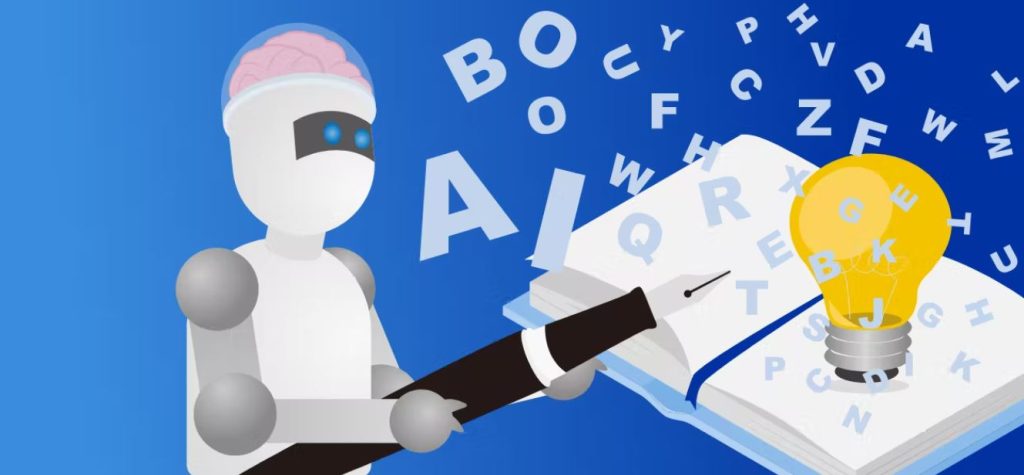How Artificial Intelligence is Shaping the Process of Academic Writing

Over the past few years, there has been significant progress in developing artificial intelligence (AI) technology, particularly in its ability to produce text that resembles human writing. This has led to a rise in the use of AI-generated writing, as businesses and other groups use it to create a wide range of content, such as marketing materials and financial reports.
Suppose a machine can generate written content that is impossible to differentiate from what a human writer could produce. In that case, hiring an actual person for the job may no longer be necessary. This poses a massive threat to the livelihood of professional writers.
How does AI writing work?
Most AI writers today utilize Open AI’s GPT-3 model, which is an autoregressive language model. The AI uses a massive dataset to predict the next best word in a sentence while maintaining its context, resulting in clear and high-quality content. The model was trained using a massive 570GB of data, which comprised approximately 10% of the internet in 2019. Although there may be some cases where the AI produces illogical information, studies show that it generates exceptional output about 80% of the time.
Artificial intelligence (AI) is used widely in academic writing to help with specific tasks. AI-powered tools are used to generate ideas, organize research, write drafts, and even proofread your work. Here are some of the ways AI is shaping the academic writing process:
- Automated research: AI-powered tools assist researchers in quickly getting relevant literature, extracting data, and even summarizing it. These tools help researchers save a significant amount of time and effort, allowing them to focus on analysis and interpretation.
- Title-generator: AI writing assistants generate headings for your essays by analyzing your abstract. Although it is designed to follow the conventions of academic paper titles, it can be utilized for any written content. Moreover, it can create a heading for any specific paragraph.
- Writing assistance: AI-based writing tools have the ability to help you improve your writing skills. They can detect frequent grammar and spelling mistakes and propose recommendations for sentence structures, making it easy for readers to understand your essay.
- Plagiarism detection: AI-powered tools help to maintain academic integrity. Therefore, they can detect plagiarism, allowing instructors to recognize instances of plagiarized work in students writing. This ensures that students are producing their original work.
- Automatic summarization: AI-powered summarization tools can assist researchers who need to review large volumes of work quickly. They help writers to promptly generate valuable and reliable summaries of lengthy essays.
- Language translation: AI-powered language translation tools can help writers to translate their work into multiple languages, opening up new audiences for their research.
The Future of AI And Writing
As AI technology advances, its use is expected to become more common in assignment writing help. Currently, AI is in its early development stages, but its potential for growth is unlimited. In due time, AI writing tools are expected to become more sophisticated and efficient. They will be aiding writers in producing higher-quality content at a faster rate. Although the future is uncertain, it is evident that the role of AI in the writing industry will continue to expand and hold a greater significance.
AI is making academic writing more efficient and effective by automating various tasks. It assists with writing and conducting research which improves the quality of written work. However, it is vital to remember that AI is not a substitute for critical thinking, originality, and creativity, which are the essential components of academic writing.



